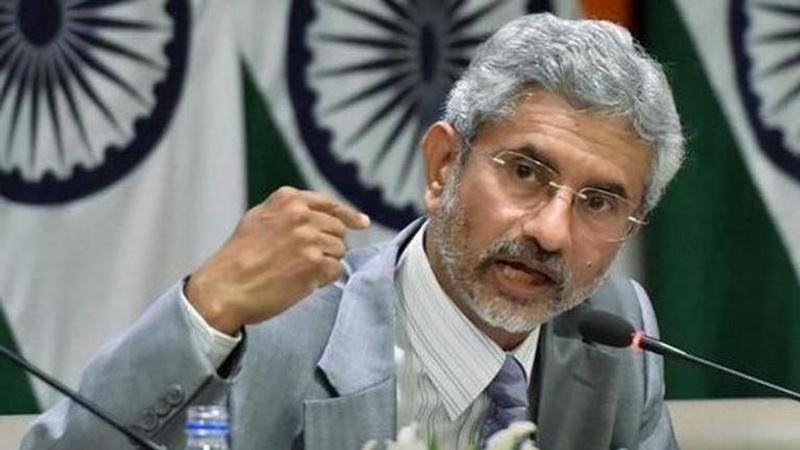Published 14:48 IST, March 7th 2020
'Show me a country that says everybody is welcome': MEA Jaishankar on CAA
No country in the world says everybody is welcome, External Affairs Minister S Jaishankar said on Saturday, hitting out at those criticising India over the Citizenship (Amendment) Act.

No country in the world says everybody is welcome, External Affairs Minister S Jaishankar said on Saturday, hitting out at those criticising India over the Citizenship (Amendment) Act. Jaishankar criticised the United Nations Human Rights Council (UNHRC) for its criticism on the situation in Jammu and Kashmir, saying its director had been wrong previously too and one should look at the UN body's past record on handling the Kashmir issue.
"We have tried to reduce the number of stateless people through this legislation. That should be appreciated," he said when asked about the CAA at the ET Global Business Summit. "We have done it in a way that we do not create a bigger problem for ourselves." "Everybody, when they look at citizenship, has a context and has a criterion. Show me a country in the world which says everybody in the world is welcome. Nobody says that" the minister said.
The external affairs minister said moving out of the Regional Comprehensive Economic Partnership (RCEP) was in the interest of India's business. Asked about the UNHRC director not agreeing with India on the Kashmir issue, Jaishankar said: "UNHRC director has been wrong before. "UNHRC skirts around cross-border terrorism as if it has nothing to do with country next door. Please understand where they are coming from; look at UNHRC's record how they handled Kashmir issue in past," he added.
UNHRC on CAA
The Ministry of External Affairs on Tuesday issued a statement on the UN High Commissioner for Human Rights filing an intervention application in the Supreme Court pertaining to the petition challenging the Citizenship Amendment Act. Stressing that the CAA was an internal matter of India, MEA spokesperson Raveesh Kumar categorically stated that no foreign party had any locus standi on issues concerning India’s sovereignty. Moreover, he emphasised that the CAA was consistent with India’s commitment to addressing human rights issues arising out of the partition. Thereafter, Kumar exuded confidence that the CAA would withstand legal scrutiny in the Supreme Court.
The CAA seeks to provide citizenship to the minority communities namely Hindus, Sikhs, Buddhists, Jains, Parsis and Christians from Afghanistan, Bangladesh and Pakistan. This will be applicable to the members of these communities having arrived in India on or before December 31, 2014. Moreover, they will not be considered as illegal migrants. Additionally, the mandatory residence period for naturalised citizenship for these communities has been reduced to five years. The Opposition contends that the Act discriminates on the basis of religion.
(With PTI inputs)
Updated 14:48 IST, March 7th 2020




